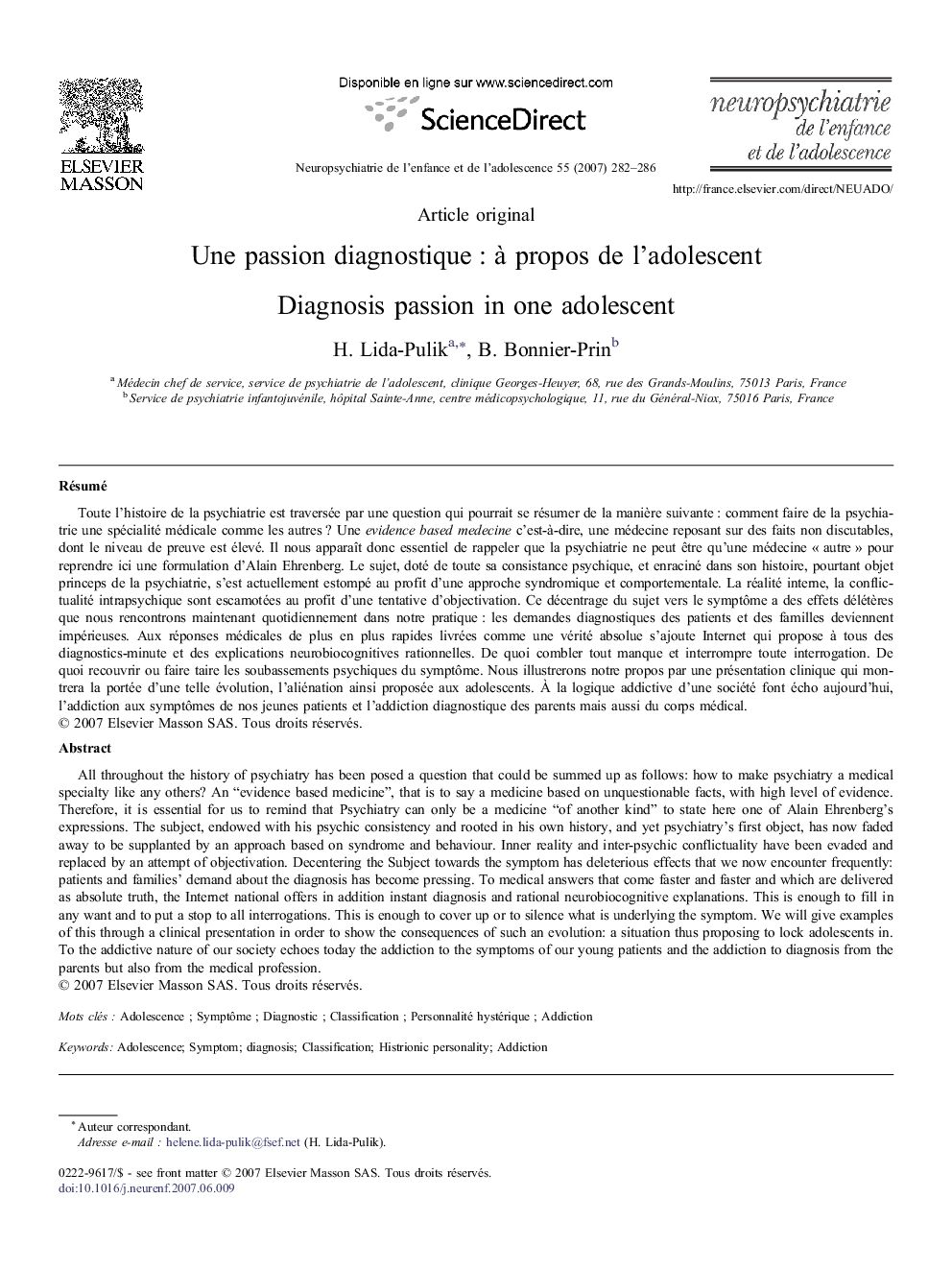ترجمه فارسی عنوان مقاله
انگیختگی ادراکی ایجاد حافظه های جدید اپیزودیک را بهبود می بخشد
عنوان انگلیسی
Une passion diagnostique : à propos de l'adolescent
| کد مقاله | سال انتشار | تعداد صفحات مقاله انگلیسی |
|---|---|---|
| 36652 | 2007 | 5 صفحه PDF |
منبع

Publisher : Elsevier - Science Direct (الزویر - ساینس دایرکت)
Journal : Neuropsychiatrie de l'Enfance et de l'Adolescence, Volume 55, Issues 5–6, September–October 2007, Pages 282–286

